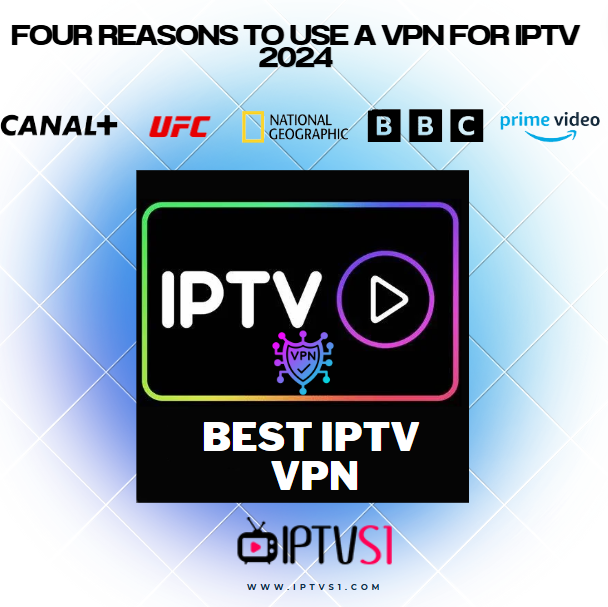
The term VPN means “Virtual Private Network.” A VPN is a private and secure service that enables anyone to browse the Internet anonymously and safely. A VPN service is offered by a service provider through its VPN servers. The VPN servers are encrypted using the latest generation of encryption technology. This means that the data transmitted by the VPN servers cannot be manipulated or accessed by anyone.
A VPN does the following:
- Protect your identity by hiding your activities from your Internet Service Provider (ISP).
- Allows you to unblock content that is prohibited in your region.
- It helps you hide your location so you can access content that is not intended for people in your area.
How does VPN work?
Most people who think about signing up for a VPN don’t know what a VPN actually does. I’ll explain the basics of a VPN below.
Every time you surf the internet, you are initially connected to your Internet Service Provider (ISP). Your internet service provider (USP) then links you to the Internet. Because your ISP is the one who gives you access to the Internet, they have the power to control which websites you visit. That gives them an edge over you because they can easily block your access to certain content. They also have the ability to see all internet traffic that passes through their servers. Since content can be geo blocked, if a website you are visiting blocks your ISP’s IP address because of its location, you won’t be able to see any content.
When it comes to VPN, the story is different. Instead of directly connecting to websites and other services through your Internet Service Provider (ISP), you first connect to your VPN server via an encrypted connection between you and your VPN server. This encrypted connection is often referred to as a VPN tunnel.
From your VPN server, all of your internet activity is forwarded to the destination that originated from your VPN server. At this point, you are browsing anonymously, though your VPN service provider may retain logs of your activity if required by your country’s law.
The websites and services you access through your VPN connection consider your location as the VPN server’s location. For example, if you’re based in France and you use a VPN server located in the United States, the sites you visit will assume that you’re in the United States.
If you want to enjoy your IPTV content, getting a VPN should be a priority for you.
Below I have listed 4 reasons why you should get a VPN for IPTV. I will develop them in detail.
- Bypass IPTV service restrictions from ISPs
- Protect your privacy
- Bypass blocking of IPTV services by ISPs
- VPN for IPTV can improve streaming performance due to routing issues.

1. Bypass IPTV service restrictions from ISPs
It’s no surprise that most Internet service providers (ISPs) have throttled their users at some point or another. What’s surprising is that most users don’t even know about this unfair practice. That’s because most people don’t know what flow limiting actually is.
What Is Flow Limiting?
Flow limiting is the intentional reduction of your broadband internet connection speed by your Internet service provider (ISP).
Internet Service Providers (ISPs) claim that they use rate limiting to “reduce network congestion and control traffic on your network.” While this may be the case, it’s certainly not what you’re paying for. For example, let’s say you’re streaming content on a 60 MB/s plan, but after throttling, your throughput drops to around 30 MB/s. Or, you’re downloading at 56 MB/s initially, but then your download speeds drop to 12 MB/s. That’s where rate limiting comes into play. You may not be able to watch your video without buffering.
Use a VPN to stop your ISP from slowing down your traffic. That way, you can watch your favorite shows and movies without having to worry about slowing down your data transfer. Since your ISP usually decides what kind of content you can access through your internet service provider (ISP), using a VPN will stop them from knowing what kind of data you’re transferring.
2. Protect your privacy
As I mentioned earlier, when you don’t use a VPN to stream video online, your Internet Service Provider (ISP) can spy on you. In the absence of a VPN, the ISP can see which websites you visit, and what type of video content you are streaming. If this type of video content is not allowed in your region, the ISP can inform the authorities, and you can go to prison.
Using a VPN keeps your ISP’s prying eyes out of your life. This is because the VPN’s end to end encrypted connection means that your location is not known, and neither is your IP address.
By using a VPN, whether it’s for IPTV or any other service, you can rest assured that your identity will remain safe when streaming video online.
As internet freedom is becoming more and more difficult to access in certain regions, an IPTV VPN can help you go undetected and gain access to blocked websites.
3. Bypass blocking of IPTV services by ISPs
IPTV is increasingly becoming the target of operators. This has led to some IPTV services being blocked by ISPs. A popular example is the blocking of IPTV providers regularly exposed during Premier League matches in the UK.
Some IPTV services can get around this problem. However, the easiest and most reliable way to ensure you can continue streaming despite ISP blocks is to use a VPN. A VPN for IPTV is the best way to ensure that your streams are not blocked or interrupted.
4. VPN for IPTV may improve streaming performance due to routing issues.
Can a VPN speed up your internet connection? The short answer is no. VPNs are just one part of your internet connection. However, they can and will enhance your streaming experience. VPNs do this by routing your connection to a more powerful and congested server. This means that if the VPN server is near the country where you want to watch the content and the server isn’t overloaded, your streaming experience will be much smoother than if you didn’t have a VPN.
Since VPNs help you avoid throttling issues by redirecting traffic via their servers, they can also slightly improve your streaming experience.
Before buying a VPN subscription, make sure your IPTV service allows you to use VPNs. Most IPTV providers do, but it doesn’t hurt to check.
Now that we know what VPNs are and how they work, let’s find out which VPN for IPTV I use and recommend.
To end
VPN services for IPTV don’t just provider you with the ability to stay anonymous while surfing or streaming on the Internet. It’s essential for online privacy, but VPNs for IPTV do so much more.
VPNs for IPTV can dramatically improve your streaming experience and allow you to bypass Internet Service Providers (ISPs) that block or slow your streams.


